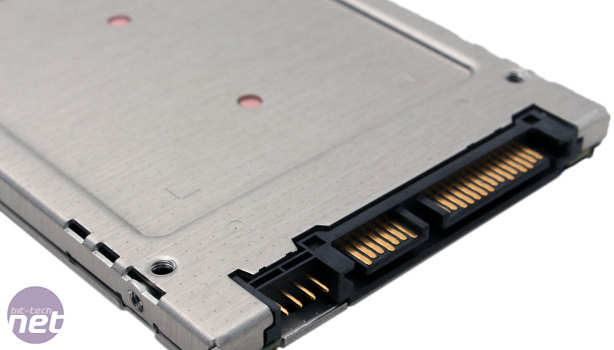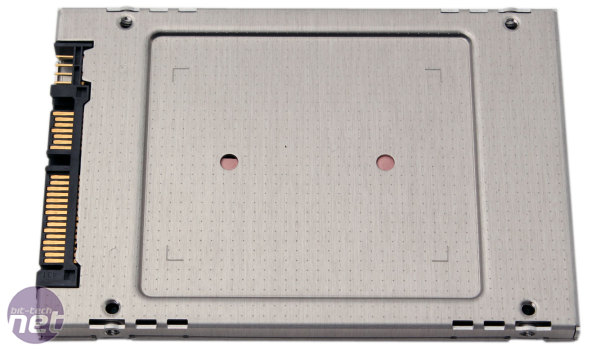
Performance Analysis
The HG6's sequential performance isn't chart topping, but it's solid and still fast. Most manufacturers of modern SSDs are now limited by the SATA 6Gbps interface, and there's little that separates most drives. With 541MB/sec and 510MB/sec sequential read and write speeds in CrystalDiskMark, you don't have much to worry about in this area with this SSD.Random performance is on the low side with both reads and writes at a single queue depth, though these aren't really the workloads that an SSD at this price is designed for. Sadly, however, at higher queue depths, the write performance is still slacking – only the SanDisk Ultra Plus 256GB, which has a low power four-channel controller, is slower. As for reads, it's better, and much higher up the charts, but both the SSD 840 Pro and Crucial M550 have the upper hand, with the latter also being less expensive.
Despite the HG6's middling synthetic performance, the trace-based PCMark 7 workloads favour the Toshiba drive over everything except for the SSD 840 Pro, which is more expensive at the 512GB capacity, and is only ahead by about 2MB/sec in both workloads anyway, so this is a fantastic result for Toshiba. That said, the HG6 is one of the slowest drives when it comes to Windows boot times.
Our new Iometer tests, which we began gathering data for a few months back, are where the drive finally shines. In all of the mixed workloads (database, file server, workstation) where there is a constant battery of both read/write commands using multiple different file sizes at a high queue depth, the Toshiba comes in second place, losing only to the Vector 150 in each case, which Toshiba will hardly see as a bad thing. In the final web server workload, which involves read commands only, the drive falls down the charts a little, with Crucial and Samsung both proving faster. That said, the difference isn't massive – the top performing SSD 840 Evo is only 5 percent ahead of Toshiba's effort.
Conclusion
The majority of SSDs from the major manufacturers now have average to excellent performance in most major areas that SSDs are tested in, and so for the average user it's mostly a question of which of these SSDs can be bought for the lowest price at the relevant capacity class. This makes offerings such as the Samsung SSD 840 Evo and Crucial MX100 fantastic options for the majority of consumers, including hardware enthusiasts and gamers, and we still stand strongly by our recommendation of both these SSDs.The more expensive, professional level drives do bring benefits of their own, but generally to less people. These benefits often include things like massive endurance, performance consistency or, as in this case, performance in demanding mixed workloads, as simulated in our Iometer testing. If you're after an SSD for such intensive use, then this could be worth a look, but even then the OCZ Vector 150 480GB is a better value option. Therefore, despite some excellent performance in some of our benchmarks, the HG6's cost per gigabyte is too big a hindrance for us to be able to recommend this SSD over other currently available.

MSI MPG Velox 100R Chassis Review
October 14 2021 | 15:04











Want to comment? Please log in.